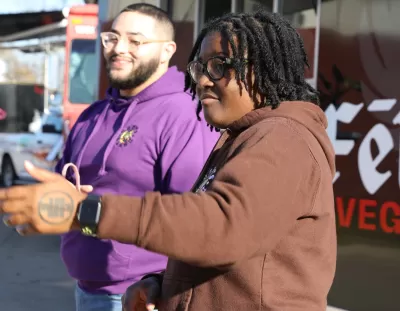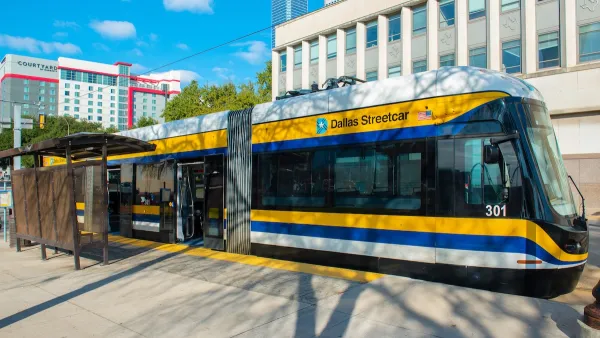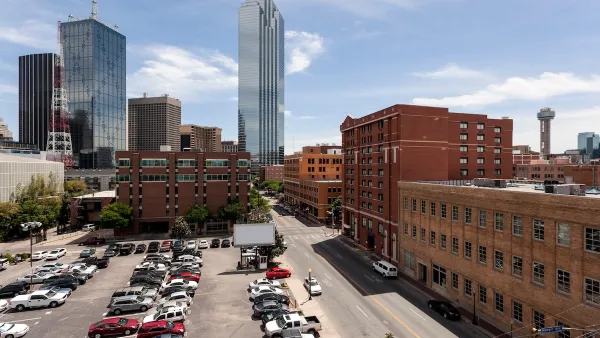Changing the legacy of racist planning policies requires a creative vision, practical solutions, and centering of the Black experience.

“From food deserts to tree inequity, racist planning practices have left Black neighborhoods devoid of amenities that promote health and well-being,” writes Alexa Spencer for Word in Black. The stark differences between Black neighborhoods and predominantly white communities are not happenstance, Spencer states, but “well-thought-out designs by urban planners, people who direct the development of cities and towns.”
This article, part of a series called Black to the Future, spotlights a “new crop” of urban planners that are seeking to change the legacy of racist planning practices with imaginative vision and practical planning solutions that center and uplift Black experience.
Such planners include Dee Powell, founder of Do Right By The Streets, a Black woman-owned urban planning and place creation group that crafts community-driven spaces. She is “on a mission to bring economic mobility and spatial justice to South Dallas, an area that is 35% Black with the highest rates of poverty in the city,” reports Spencer. Her most recent project is the Sunny South Dallas Food Park, which aims to provide a commerce space for Black-owned businesses and a place for residents to gather, have meetings, and connect to wifi. Powell dreams of “a revived Tulsa — or South Dallas — of the 1950s and 1960s, where Black folks thrived in health, community, and business.”
Do Right By The Streets is one of many groups nationwide working to build a prosperous future for Black communities via urban planning strategies. Others highlighted in the Word In Black article include Thrivance Group in California, Albina Vision Trust in Portland, Oregon, and Jima Studio on the East Coast.
FULL STORY: Urban Planning, But Add Some Afrofuturism

Planetizen Federal Action Tracker
A weekly monitor of how Trump’s orders and actions are impacting planners and planning in America.

Restaurant Patios Were a Pandemic Win — Why Were They so Hard to Keep?
Social distancing requirements and changes in travel patterns prompted cities to pilot new uses for street and sidewalk space. Then it got complicated.

Map: Where Senate Republicans Want to Sell Your Public Lands
For public land advocates, the Senate Republicans’ proposal to sell millions of acres of public land in the West is “the biggest fight of their careers.”

Maui's Vacation Rental Debate Turns Ugly
Verbal attacks, misinformation campaigns and fistfights plague a high-stakes debate to convert thousands of vacation rentals into long-term housing.

San Francisco Suspends Traffic Calming Amidst Record Deaths
Citing “a challenging fiscal landscape,” the city will cease the program on the heels of 42 traffic deaths, including 24 pedestrians.

California Homeless Arrests, Citations Spike After Ruling
An investigation reveals that anti-homeless actions increased up to 500% after Grants Pass v. Johnson — even in cities claiming no policy change.
Urban Design for Planners 1: Software Tools
This six-course series explores essential urban design concepts using open source software and equips planners with the tools they need to participate fully in the urban design process.
Planning for Universal Design
Learn the tools for implementing Universal Design in planning regulations.
Heyer Gruel & Associates PA
JM Goldson LLC
Custer County Colorado
City of Camden Redevelopment Agency
City of Astoria
Transportation Research & Education Center (TREC) at Portland State University
Camden Redevelopment Agency
City of Claremont
Municipality of Princeton (NJ)





























